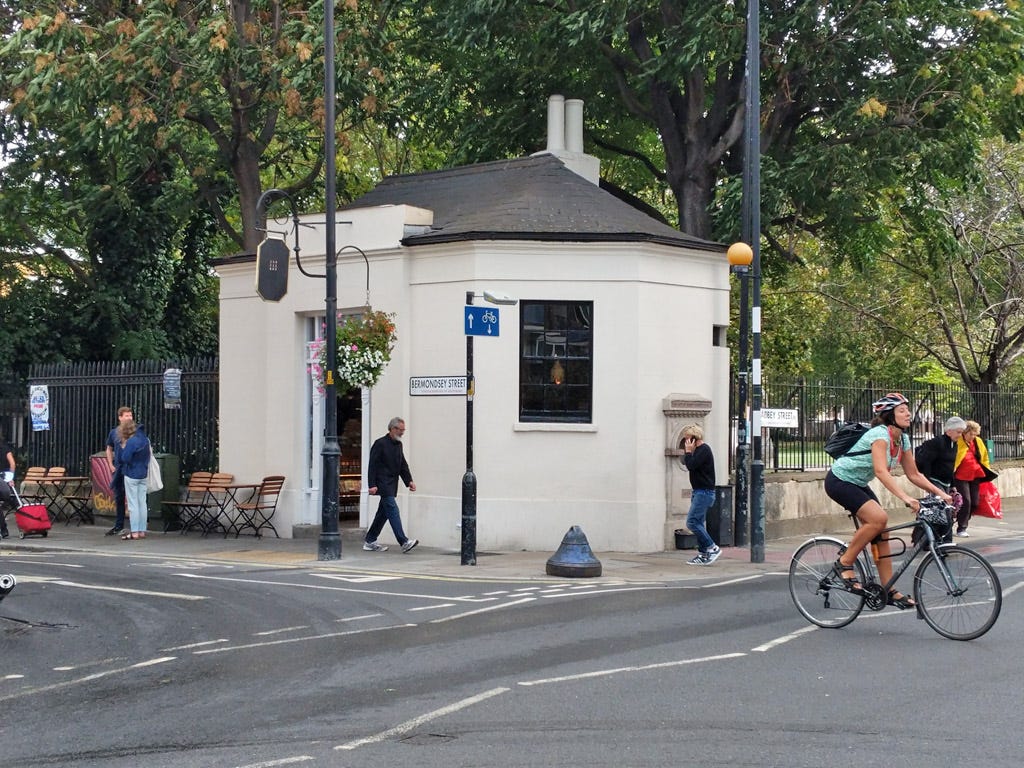Watch
Advent musings on the word “Watch.”
Grave Robbing
This past summer, my family and I vacationed in part to London. We stayed in a lovely hotel in Bermondsey, a quiet nook of a place south of the river not far from London Bridge Station and Tower Bridge. Across the street was a coffeehouse we visited each morning called WatchHouse. Now a small chain in London, this WatchHouse coffee takes up residence in an old watch house, whose guards aimed to prevent grave robbers.

Prevent grave robbers. Hang on to that for a moment. The poetry of a coffeeshop named WatchHouse is in the caffeinated commuters who pop in each morning in a ritual of resurrection. Shots of espresso make watchful guardians against the grave robbers of today: soulless, mindless cubicles, rectangles within rectangles, burials of paperwork. We prevent grave robbing today by refusing to stay in the grave, you might say. Caffeine gets us there in the smallest possible sense, but the alertness it represents is the real deal. Here we are in Advent eager, mindful, watchful, guarding against the dark, fresh chemistry in the blood just waiting to kick in. Advent anticipates birth, which is a kind of emergence from a kind of tomb. May we all find moments in the watch house this season.
Dogberry
From William Shakespeare’s Much Ado About Nothing:
Watchman. We will rather sleep than talk: we know what
belongs to a watch.
Dogberry. Why, you speak like an ancient and most quiet
watchman; for I cannot see how sleeping should
offend: only, have a care that your bills be not
stolen. Well, you are to call at all the
ale-houses, and bid those that are drunk get them to bed.
Watchman. How if they will not?
Dogberry. Why, then, let them alone till they are sober: if
they make you not then the better answer, you may
say they are not the men you took them for.
Watchman. Well, sir.
[A…] most quiet watchman. “We would rather sleep than talk. We know what belongs to a watch,” says Shakespeare’s watchman to the constable, Dogberry. Unlike Dogberry, whose malapropisms govern everything he says, this watchman gets it. You may be hiring us to keep watch, but everyone knows the deal: we’re going to fall asleep. Dogberry, every the misunderstander, accepts the conclusion, perhaps patting this watchman George Seacole on the back. “An ancient and most quiet watchman.” Ancient here has a double meaning, perhaps. “Old” is the one we know. But it also includes the idea of “before” and, in another Shakespeare play, Othello, is used as a military title of a kind of lieutenant who goes before the general to make things ready. May we find moments of quiet to go before the longing of this season and make things ready. Even if we do fall asleep while we’re at it.
Watching
You were watching the whole time.
When the darkness makes me feel like I'm far away from you
You gently remind me that this never was nor will be true
May we know that darkness does not contain the whole truth.
Meditation
Find a quiet space and imagine yourself in the cozy surroundings of WatchHouse Coffee Shop. Picture yourself sipping a warm beverage, observing the world around you with keen interest. Ponder on Dogberry’s reference to the 'ancient and most quiet watchman,' and reflect on what it means to be a watchman in your own life.
As you meditate, let the song "Shoulders" by The Arcadian Wild resonate in the background. Allow its lyrics and melody to guide you into a state of watchfulness, where you are not only physically observant but also deeply connected to your thoughts and emotions. This kind of watchfulness is about being present and attentive to the unfolding tapestry of life.
Examen
Recall a recent moment when you were truly watchful, completely absorbed and present in your surroundings or with your inner self. What insights did this heightened awareness bring?
Consider the character of Dogberry in 'Much Ado About Nothing.' Despite his comedic nature, can we glean lessons about the significance of earnest watchfulness, even amidst perceived foolishness?
While listening to "Shoulders" by The Arcadian Wild, ponder what the song’s narrative about support and connection might mean to you during this Advent.
What practical steps can you take to incorporate watchfulness into your everyday life? How might being more observant and mindful enrich your Advent experience?



